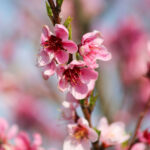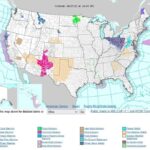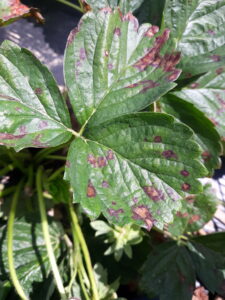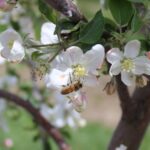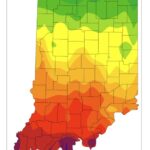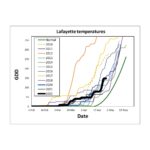Cold temperatures throughout March and April have led to delays in grapevine phenology ranging from 7-14 days behind normal. Generally speaking, later bud break reduces the risk of spring frost damage. However, warm weather over the weekend has progressed bud development greatly. Buds are in various stages of growth across the state, ranging from bud[Read More…]
A new strawberry disease has been found in Indiana and researchers are looking for samples to determine the extent of the problem. The disease, caused by a species of the fungus Neopestalotiopsis, has been reported in several southeastern states and other countries where it causes leafspots, fruit spots and a plant decline. In Indiana, the[Read More…]
Listen to Strawberry Chat Episode 2. The episode was recorded on April 6, 2022, it featured Dr. Bruce Bordelon talking about spring activities for the strawberry matted-row system. Are you interested in participating live in the next strawberry chat? It will be 12:00 -1:00 pm, May 4, 2022. Our guests will be Dr. Janna Beckerman[Read More…]
Time: Thursday, May 12, 2022, 1:30-4:00 pm EST Location: Southwest Purdue Ag Center, 4369 N. Purdue Rd, Vincennes, IN, 47591 Register: https://purdue.ca1.qualtrics.com/jfe/form/SV_dgK5N8Ws9m2cJWC, or call 812-886-0198 Visit strawberry research at Southwest Purdue Agriculture Center; see strawberry production on a plastic culture system, in high tunnels, and in bench systems. Discuss season extension in strawberry production, and[Read More…]
Throughout the state, most of us are in some stage of tree fruit bloom and as fruit producers, you all know how important insect pollinators are for ensuring good fruit set and even quality! Whether you’re producing tree fruits, nuts, or small fruit (even grapes, although they aren’t dependent on insect pollinators), we know that[Read More…]
Lots of wet days, not a lot of rain It seems to be a big challenge these days to find two or more consecutive days without precipitation. What is interesting is the precipitation isn’t always coming in great amounts, but enough to impact any outdoor plans. For example, will it be dry enough for enough[Read More…]
Historically Stinger® herbicide application in Indiana strawberries was limited to post-harvest. A new 24(c) Special Local Needs Label now includes a spring application (Figure 1). Why does it matter? A spring application of Stinger® will help to manage certain difficult-to-control broadleaf weeds in the spring. This will reduce reliance on hand-weeding, reduce competition between[Read More…]
Spring temperatures It seems like spring is progressing slowly, and in some respects it is. At this time of the year, the rate of plant development depends largely on temperature. The warmer it is, the faster plants develop. Early in the season we hope for cool weather to slow down bud development. This is so[Read More…]
We’re getting close to the time when growers need to make chemical thinning decisions – for many the most perplexing and risky decision they will make all year. This is usually a tricky call to make. Remember that only about 5-10% fruit set is usually enough for a full crop. In other words, 90 out[Read More…]
Purdue University prohibits discrimination against any member of the University community on the basis of race, religion, color, sex, age, national origin or ancestry, genetic information, marital status, parental status, sexual orientation, gender identity and expression, disability, or status as a veteran. This material may be available in alternative formats. 1-888-EXT-INFO Disclaimer: Reference to products in this publication is not intended to be an endorsement to the exclusion of others which may have similar uses. Any person using products listed in this publication assumes full responsibility for their use in accordance with current directions of the manufacturer.
